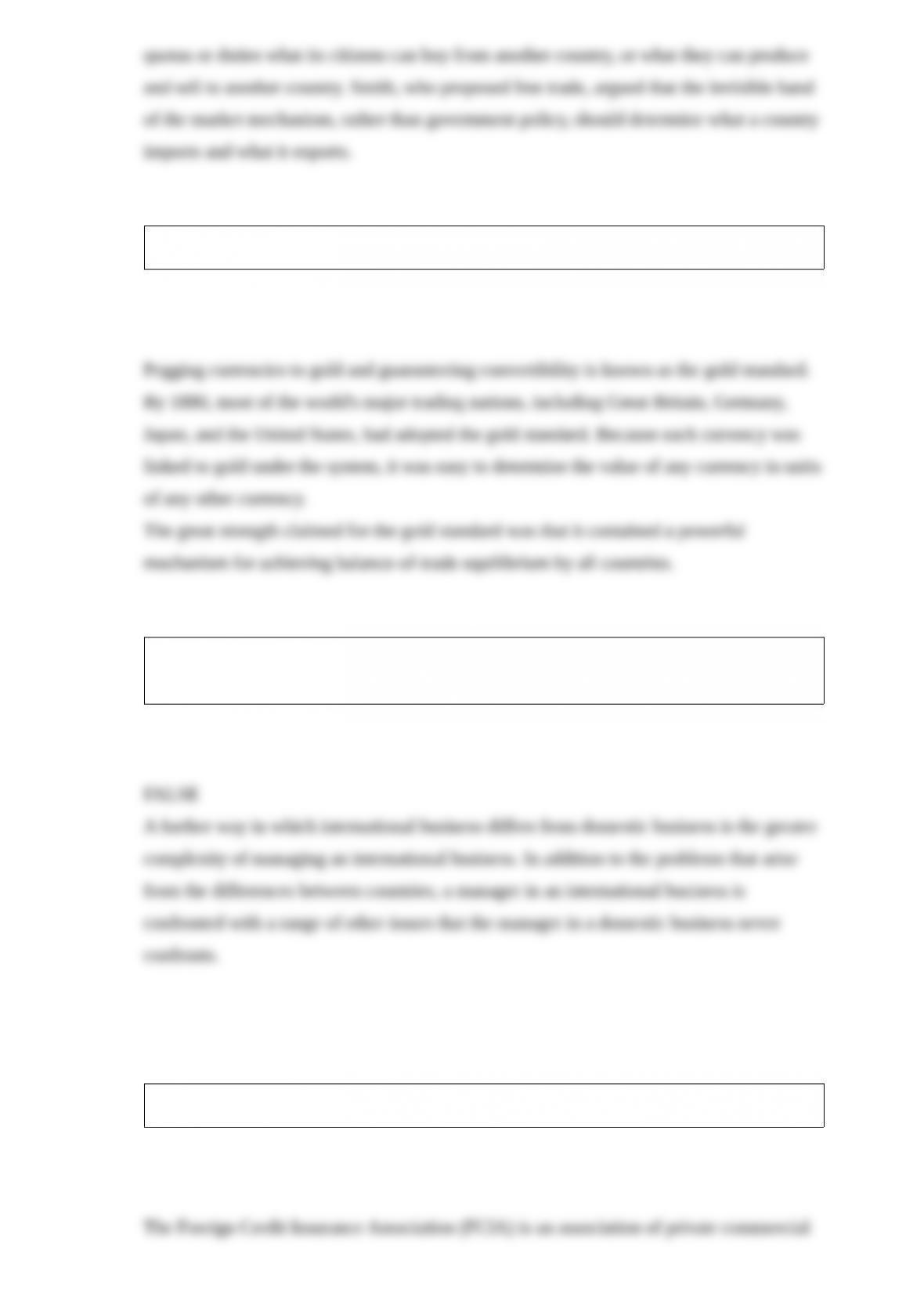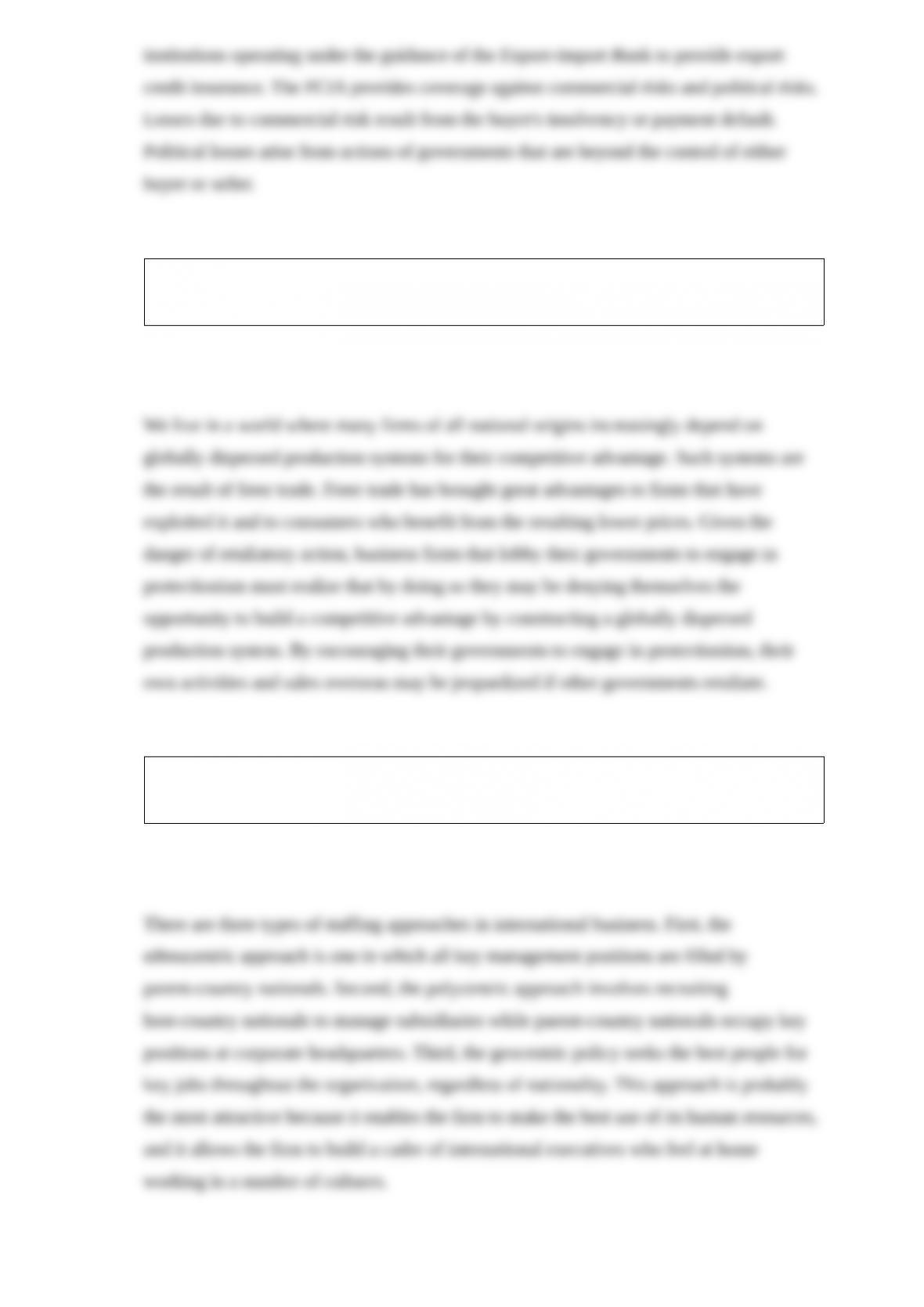Which of the following statements about the choice of distribution strategy is true?
A. The longer a channel, the greater the aggregate markup, and the higher the price that
consumers are charged for the final product.
B. If price is an important competitive weapon and if the firm does not want to see its
profit margins squeezed, other things being equal, the firm would prefer to use a longer
channel.
C. The shorter a channel, the greater the aggregate markup, and the higher the price that
consumers are charged for the final product.
D. An international business must use shorter channels in countries where the retail
sector is fragmented and longer channels in countries where the retail sector is
concentrated.
Which of the following statements is true of the deregulation of financial industry?
A. Countries can strengthen the global capital market by encouraging strict regulations.
B. Financial services have historically been the most deregulated of all industries.
C. Deregulation helped the development of an international capital market.
D. Deregulation compels financial services companies to remain as domestic
companies.
The projected rate will typically be the _____ as determined by the foreign exchange
market when firms use the projected spot exchange rate to translate both the budget and
performance figures into the corporate currency.



























































